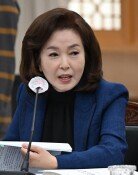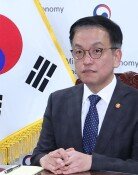`3 Highs` Era Threatens Korean Economy
`3 Highs` Era Threatens Korean Economy
Posted October. 08, 2009 08:59,
The "three lows" era of a low value of the Korean won, low interest rates and low international oil prices has gradually eroded, with the new "three highs" era of a surging won, higher interest rates, and rising oil prices threatening the Korean economy.
Since the global financial crisis emerged in September last year, the Korean government has expanded fiscal spending and pumped more money into the market to lower interest rates, the wons value and oil prices, factors which have positively affected the economy. Now, however, the economy is headed toward a totally new battlefield.
If the new era arrives, Korean exporters will face a bitter reality under which the effects of the favorable exchange rate disappear and the price of raw materials jumps. For its part, the government must also take on the new challenges of surging inflation and household debt resulting from higher interest rates.
Experts say Korea should prepare itself for the three highs era instead of being fascinated by the domestic economys faster-than-expected recovery.
○ Three highs era draws closer
The value of the Korean currency has jumped 25.5 percent over the past seven months. The won-dollar exchange rate has gone from 1,570 in early March to 1,170 this month.
The problem, however, is that the pace of the wons appreciation has exceeded that of other major currencies. At the request of The Dong-A Ilbo, the Korea Center for International Finance analyzed how rapidly the currencies of G-20 economies appreciated last month. The value of the won was found to have risen 4.9 percent in September, third highest among the 16 currencies used by 20 economies behind the Brazilian real (5.2 percent) and the Russian ruble (five percent).
Interest rates and oil prices have also jumped. Though the Bank of Korea has frozen the key rate at two percent over the past six months, the certificate of deposit rate, the benchmark for mortgage loan interest rates, jumped from 2.41 percent in early July to 2.79 percent Wednesday.
Accordingly, the mortgage loan interest rate at commercial banks recently surpassed 6.5 percent per year.
The average spot price of Dubai oil surged from 44 dollars per barrel in January to 67 dollars last month. Senior researcher Lee Gwang-woo of LG Economic Research Institute said, The economy is expected to recover smoothly next year and oil demand is likely to jump soon. Oil prices will stay between 75 and 85 dollars per barrel next year.
Merrill Lynch predicted that the price of oil will surpass 100 dollars per barrel next year if the global economy recovers rapidly.
Moreover, the prices of other raw materials such as copper, zinc and nickel have skyrocketed.
○ New challenges for the Korean economy
The eras of the three highs and three lows have changed Koreas economic trends. The time of the three lows in the late 1980s saw an unprecedented boom for the economy, but the last three highs era in 2005 saw macroeconomic records worsen.
A report by the Strategy and Finance Ministry released this month said a five-percent decrease in the wons value in real effective exchange rate, or the weighted average of a currency relative to an index or basket of other major currencies, results in a 0.1 percentage point fall in Koreas economic growth rate. A fall in exports will also put downward pressure on economic growth.
A rise of one percentage point in the interest on loans will raise interest 420 billion won (358.8 million dollars) per month for corporations and 330 billion won (281.9 million dollars) for households. Even when interest receipts are considered, the net interest burden will jump 280 billion won (239.2 million dollars) for corporations and 80 billion won (68.3 million dollars) for households.
Surging international oil prices weaken the purchasing power of corporations and households, thus reducing domestic demand. If international oil prices grow 10 percent, private consumption falls 0.12 percent and Koreas GDP tumbles 0.21 percent.
The three highs are unnecessary by-products of economic recovery, but experts say their effects on the economy will be worse than expected since they influence the economy at once.
Yoo Byeong-gyu, head of economic research at Hyundai Economic Research Institute, said, If economic recovery becomes notable, Koreas economy is highly likely to face a new three highs era. Households should repay debt as soon as possible and corporations should reexamine their money flow, increase efficiency of their cost structure, and strengthen export competitiveness.
The government is also considering countermeasures against the three highs. A high-ranking ministry official said, The won has appreciated at a relatively rapid pace. It is not right to predict that monetary authorities will never break market expectations. Weve kept an eye on the market.
Given that the foreign exchange rate and oil prices are external factors, however, the government apparently has few options.
lovesong@donga.com peacechaos@donga.com







